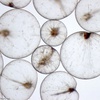
Algae bloom researcher using 1800's citizen scientist data
A researcher is mining data from the 1800s to help explain curious algae blooms that have been popping up in New Brunswick in the US recently. Read more at CBS News.



A researcher is mining data from the 1800s to help explain curious algae blooms that have been popping up in New Brunswick in the US recently. Read more at CBS News.

Through a multi-group investigation based around northern Australia, we’ve identified a new whipray species, becoming one of the largest known species of stingrays. Read the full story in the CSIRO Blog.

Enter a competition to name this awesome sea slug (nudibranch) and you could win a trip to Perth! Watch the video below and enter the comp at ABC's Radio National.

It looks somewhat amusing - an orange fish with bulbous googly eyes. But this Redmap sighting of an eyebrow perch (Hypoplectrodes species) in SE Tasmania is a very special one. It is possibly the first known occurrence of this species so far south!
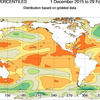
Ever doubt how how accurate climate models are in predicting ocean warming? A recent thorough study demonstrates that climate models are very good at predicting warming - within 3% of measured warming values to be exact! Read about this study in The Guardian.

Redmap Australia is a finalist in the prestigious Australian Museum Eureka Prizes, which celebrate excellence in science! Redmap founder Associate Professor Gretta Pecl said the shortlisting was a welcome acknowledgement of the significant contributions many fishers, divers, boaters and scientists around Australia had made towards understanding the effects of marine climate change.
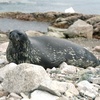
Scientists are asking the public to look through thousands of satellite images of Antarctica to assist in the first-ever, comprehensive count of Weddell seals. Counting seals will help scientists better protect and conserve the pristine Ross Sea and wildlife in the area. Read the full story on the University of Minnesota website.
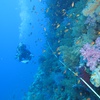
Decompression computers worn by recreational and commercial divers provides accurate data, study shows. Millions of holidaying scuba divers are able to become citizen scientists and take vital measurements of ocean temperatures, which are being driven up by climate change. Read the full story in The Guardian.
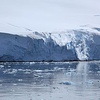
Scientists said cooling of tip over past 15 years is related to wind patterns, but does not mean that global warming has stopped, says The Guardian.
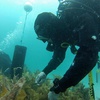
If it’s not able to recover, a dead coral reef will collapse into a seaweed forest, writes Caitlin Martin Newnham. Read the full story in Hakai Magazine.